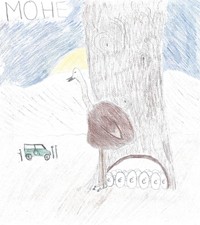Advertisement
Grab your lab coat. Let's get started
Welcome!
Welcome!
Create an account below to get 6 C&EN articles per month, receive newsletters and more - all free.
It seems this is your first time logging in online. Please enter the following information to continue.
As an ACS member you automatically get access to this site. All we need is few more details to create your reading experience.
Not you? Sign in with a different account.
Not you? Sign in with a different account.
ERROR 1
ERROR 1
ERROR 2
ERROR 2
ERROR 2
ERROR 2
ERROR 2
Password and Confirm password must match.
If you have an ACS member number, please enter it here so we can link this account to your membership. (optional)
ERROR 2
ACS values your privacy. By submitting your information, you are gaining access to C&EN and subscribing to our weekly newsletter. We use the information you provide to make your reading experience better, and we will never sell your data to third party members.
Attention: academic, industry, government researchers
C&EN would like to hear about the processes that researchers in academia, industry, or government use to write a paper for submission to a peer-reviewed journal. C&EN is interested in, among other things, the dynamics involved. For example, is one person responsible for writing the bulk of a paper? Is there an outline? Does writing involve a blog or wiki? Please contact Rachel Petkewich at r_petkewich@acs.org or (202) 872-7861 by March 15 if you are interested in being interviewed. Replies will be considered for an upcoming article in the magazine.
In the letter to the editor from James Coughlin, in which he minimizes the dangers of acrylamides in food, there was no indication that he had been hired by the opponents of legislation that is designed to warn people of the potential cancer-producing effect of acrylamides (C&EN, Nov. 13, 2006, page 5).
The issue is whether food containing acrylamides should be labeled as such. Studies that show a positive aspect of the presence of acrylamides in reducing cancer are cited by Coughlin. Regardless of whether you choose to believe this study or that one, none of these recent studies can truly assess the long-term effects. It is up to each one of us to decide if and how much we want to eat of any product that contains potentially toxic ingredients.
I do not want Coughlin or those who support him in this area to work against my and my children's best interest by lobbying the government to restrict labeling laws that will allow me to discriminate either for or against a food product.
Lou Rigali
Oakland, Calif.








Join the conversation
Contact the reporter
Submit a Letter to the Editor for publication
Engage with us on Twitter